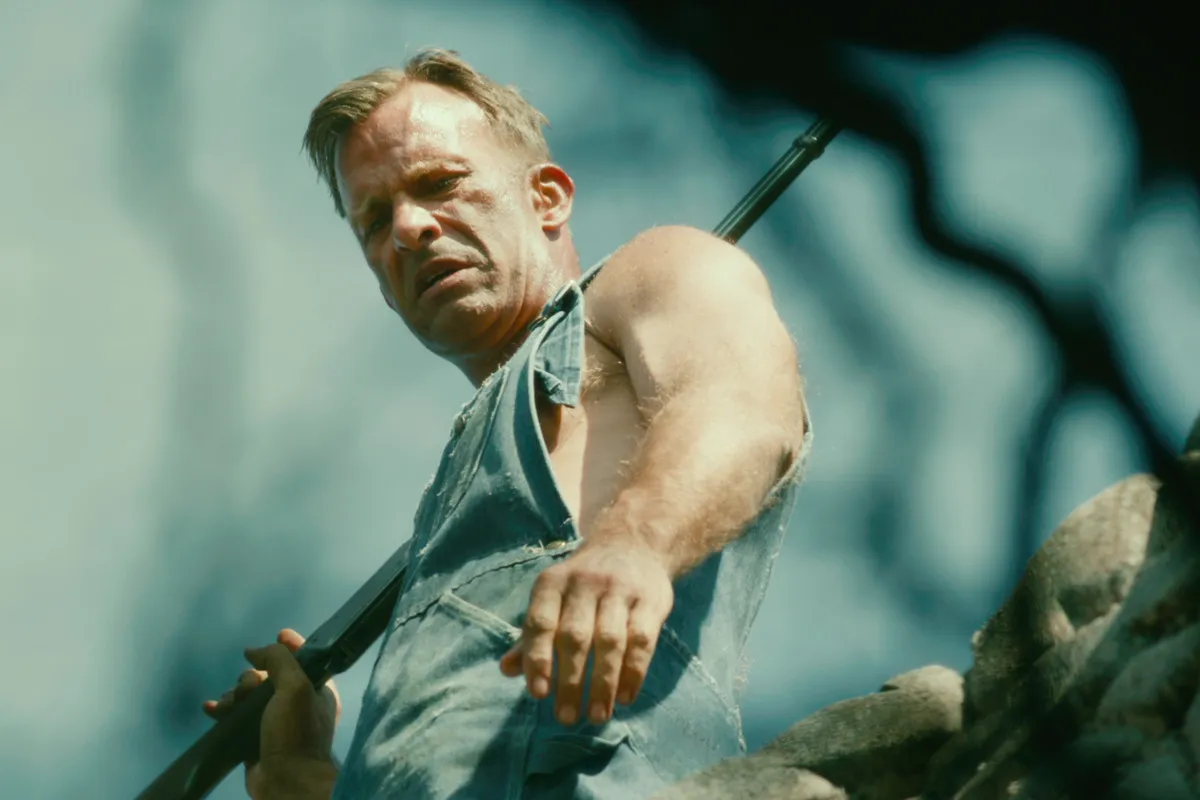Overlooked Gems: “1922” - A Stephen King Adaptation You Might Have Missed
In our weekly “Off the Beaten Path” column, we shine a light on films that may not grace Russian cinemas but still deserve your attention.
The year is 1922. Wilfred James, a respectable farmer and family patriarch, cultivates a vast plot of land inherited from his father. His marriage to Arlette doubled the farm’s size, but his wife yearns for more than a life confined to the endless cornfields. She plans to sell the land and move to the city, a prospect that deeply unsettles Wilfred, who clings to the traditions of his farming ancestors. When persuasion fails and Arlette refuses to sell her acres to her husband, Wilfred resorts to a desperate measure. Enlisting his son Henry, he murders his wife and throws her body down a well, staging her disappearance. The police find no leads, and it seems father and son will get away with their crime. However, the universe has other plans, unleashing a torrent of madness-inducing misfortunes upon Wilfred and Henry.

Hollywood’s “Year of Stephen King,” which began with the series “The Mist” and “Mr. Mercedes” and continued with the films “The Dark Tower” and “It,” can be considered closed with the release of “1922,” a horror-drama directed by Zak Hilditch, which, like the recent “Gerald’s Game,” premiered on Netflix. Based on a novella about a farmer who succumbs to the darkness within and commits murder, the film is less a horror flick and more a drama about crime and punishment, or the karmic cycle, a recurring theme in Stephen King’s works and their adaptations.

The story of “1922,” both the novella and the film, unfolds near the fictional town of Hemingford Home, the setting for “The Stand,” another of King’s works and a subsequent TV movie.
Many may find the film challenging to watch. Hilditch’s direction is deliberate, slow-paced, and methodical. The few energetic or frightening scenes can be counted on one hand. However, this is to be expected, as King’s work is not always about jump scares and frights. The novella “1922,” published relatively recently in the collection “Full Dark, No Stars,” showcases a different side of the “King of Horror,” one who is thoughtful and meticulous in exploring the characters and motivations of his protagonists, rather than relying on “Indian burial grounds,” “ghosts,” and “parallel worlds.” The book presents a classic “crime and punishment” narrative, where retribution is inevitable, and the killer’s fate is even more horrifying than the death of his victim. In a way, King simplifies Dostoevsky and grounds the repentance process of his “Raskolnikov,” but this downfall feels believable, especially on screen.
A Deep Dive into the Past
Another key reason for writing the novella was the author’s desire to immerse himself in the era preceding the Great Depression. King enjoys studying American history and placing his characters in the context of the past, approaching the task with meticulous attention to detail. This is evident in the film as well. The detailed portrayal of everyday life on a typical Midwestern farm is rarely seen in other films. The director of “1922” strived for maximum authenticity in costumes, hairstyles, accessories, and home decor, which undoubtedly sets the project apart from similar films. However, not everyone will find the “connection to the land” and “adherence to traditions” interesting, but this can be said of any genre film.

Thomas Jane stars in his third Stephen King adaptation, having previously appeared in “The Mist” and “Dreamcatcher.”
Thomas Jane’s Riveting Performance
What will undoubtedly please viewers is the return of Thomas Jane in the lead role. Firstly, he is almost unrecognizable as Wilfred, despite the lack of heavy makeup. He simply looks weathered and tanned, like a true Alabama farmer. Secondly, he delivers a range of emotions and feelings rarely afforded to actors, even over an entire career. Jane’s character transitions from a model family man to a cold-blooded criminal, a contented landowner to a drained sinner, a family leader who has lost everything to a madman. Ultimately, it is Thomas’s performance that shakes the sticky web of darkness that envelops Hilditch’s film. Without him, viewers might have drifted off to sleep within the first fifteen minutes.
Final Verdict
In the context of the playful “Year of King,” “1922” doesn’t compete for top honors. The film lacks a certain spark, occasionally hesitates, and relies more on the viewer’s imagination and intelligence than on its own strengths. However, among all the adaptations of Stephen King’s books, the film will likely not be forgotten, as it showcases the writer from a slightly different perspective, as “Hearts in Atlantis” or “Apt Pupil” did in their time. The screen adaptation of “1922” will find its place in the collections of fans of the writer’s work but may disappoint those expecting a new “Christine” or “Cujo.” Instead, we have another “Thinner,” a solid but niche film.